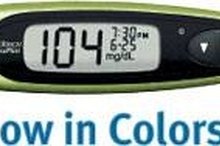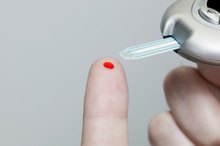What does fact checked mean?
At Healthfully, we strive to deliver objective content that is accurate and up-to-date. Our team periodically reviews articles in order to ensure content quality. The sources cited below consist of evidence from peer-reviewed journals, prominent medical organizations, academic associations, and government data.
The information contained on this site is for informational purposes only, and should not be used as a substitute for the advice of a professional health care provider. Please check with the appropriate physician regarding health questions and concerns. Although we strive to deliver accurate and up-to-date information, no guarantee to that effect is made.
Tea & Fasting for a Blood Test
People who normally drink tea in the morning may have to forego that pleasure when preparing for a diagnostic blood test. Many common blood tests require fasting to produce an accurate sample for evaluation 1. Your ability to follow instructions will determine how successful you will be.
Type of Blood Work
Fasting and nonfasting blood tests are often combined for convenience and for comprehensive health checks. Your doctor may order a single specimen drawn to evaluate a number of different aspects about your physical conditions, including organ function, nutrient levels, blood cell count and disease risk factors. Assessments such as lipoprotein profiles and glucose tolerance tests typically require fasting. Your health care provider will let you know when and how long to fast, and how fully you must meet the definition of fasting.
- Fasting and nonfasting blood tests are often combined for convenience and for comprehensive health checks.
- Your doctor may order a single specimen drawn to evaluate a number of different aspects about your physical conditions, including organ function, nutrient levels, blood cell count and disease risk factors.
Your Daily Diet vs. a Fasting Diet
Fasting Blood Tests & Black Coffee
Learn More
Fasting diets for blood work consist of water only, with no other beverage or food for a specified time. If you use an herbal tea to induce drowsiness before you go to bed at night, you will have to skip that aid if your blood test requires overnight fasting. Ask your doctor whether you can have sleep medication while fasting in case you need it 1. If you usually have a cup or more of tea, coffee or another beverage other than water with breakfast in the morning, you must alter that part of your diet on the day of the test. Black tea and coffee may change your blood chemistry and are not allowed while fasting 1.
How to Get Ready
A change in dietary routine is more difficult for some people than others. You can alleviate anxiety about fainting or missing your morning tea and breakfast on the day of your blood draw by packing a to-go snack the night before. Reduce the impact of fasting on your system by eating a healthy dinner before you start your fast and having plenty of cold water available.
How to Fast
High Liver Enzymes, Fasting and Blood Tests
Learn More
Your doctor will tell you where your fasting needs fall in the average eight to 12 hours typically required and whether you are allowed to deviate from a water-only regimen. Unless otherwise instructed, do not add anything such as tea, coffee or lemon to the water that you drink. Do not eat any food until after you have given your blood specimen at the lab.
Related Articles
References
- American Association for Clinical Chemistry: Test Preparation, Your Role
- MedlinePlus: Glucose Test
- Collier R. Intermittent fasting: the next big weight loss fad. CMAJ. 2013;185(8):E321–E322. doi:10.1503/cmaj.109-4437
- Patterson RE, Laughlin GA, LaCroix AZ, et al. Intermittent fasting and human metabolic health. J Acad Nutr Diet. 2015;115(8):1203–1212. doi:10.1016/j.jand.2015.02.018
- Varady KA, Bhutani S, Church EC, Klempel MC. Short-term modified alternate-day fasting: a novel dietary strategy for weight loss and cardioprotection in obese adults. Am J Clin Nutr. 2009;90(5):1138-43. doi:10.3945/ajcn.2009.28380
- Arnason TG, Bowen MW, Mansell KD. Effects of intermittent fasting on health markers in those with type 2 diabetes: A pilot study. World J Diabetes. 2017;8(4):154–164. doi:10.4239/wjd.v8.i4.154
- Trepanowski JF, Kroeger CM, Barnosky A, et al. Effect of alternate-day fasting on weight loss, weight maintenance, and cardioprotection among metabolically healthy obese adults: a randomized clinical trial. JAMA Intern Med. 2017;177(7):930-938. doi:10.1001/jamainternmed.2017.0936
- Zhang J, Zhan Z, Li X, et al. Intermittent Fasting Protects against Alzheimer's Disease Possible through Restoring Aquaporin-4 Polarity. Front Mol Neurosci. 2017;10:395. Published 2017 Nov 29. doi:10.3389/fnmol.2017.00395
- Harvie M, Howell A. Potential benefits and harms of intermittent energy restriction and intermittent fasting amongst obese, overweight and normal weight subjects-A narrative review of human and animal evidence. Behav Sci (Basel). 2017;7(1):4. Published 2017 Jan 19. doi:10.3390/bs7010004
- Barnosky AR, Hoddy KK, Unterman TG, Varady KA. Intermittent fasting vs daily calorie restriction for type 2 diabetes prevention: a review of human findings. Translational research: The Journal of Laboratory and Clinical Medicine. 2014;164(4):302-11.
- Martin B, Mattson M, Maudsley S. Caloric restriction and intermittent fasting: Two potential diets for successful brain aging. Ageing Res Rev. 2006;5(3):332-353.
- St-Onge MP, Ard J, Baskin ML, Chiuve SE, Johnson HM, Kris-Etherton P, et al. Meal Timing and Frequency: Implications for Cardiovascular Disease Prevention: A Scientific Statement from the American Heart Association. Circulation. 2017;135(9):e96-e121.
- Stote KS, Baer DJ, Spears K, et al. A controlled trial of reduced meal frequency without caloric restriction in healthy, normal-weight, middle-aged adults. Am J Clin Nutr. 2007;85(4):981-8.
- Zauner C, Schneeweiss B, Kranz A, et al. Resting energy expenditure in short-term starvation is increased as a result of an increase in serum norepinephrine. Am J Clin Nutr. 2000;71(6):1511-1515.
Writer Bio
Nancy Clarke began writing in 1988 after achieving her Bachelor of Arts in English and has edited books on medicine, diet, senior care and other health topics. Her related affiliations include work for the American Medical Association and Oregon Health Plan.









